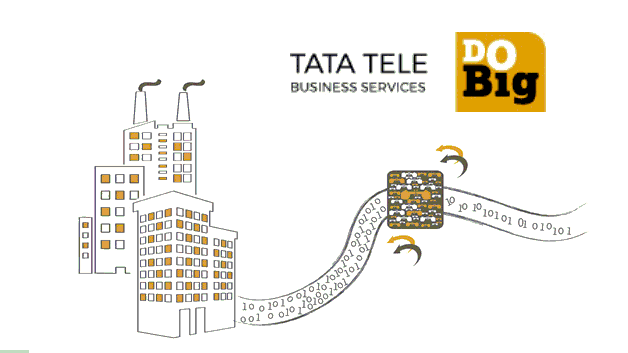Micro, Small and Medium Enterprises (MSMEs) comprise over 90 percent of the total entities doing businesses in India, and it is accounted that MSMEs are the key driver of GDP growth in India. However, the growth of MSMEs in India to the status of large enterprise is much slower compared to that in developed countries. One of the primary hurdles for this is the lack of access to competitive technologies that foster the growth by exposing them to global audience. Data connectivity solutions come into picture in this context as they help SMES transform into large, digital enterprises by expanding their reach to a wide network of partners and customers across the globe.
Data connectivity in India has improved significantly over the past decade; however, several SMEs are still not leveraging these technologies in the required level. Lack of awareness and the challenges associated with adopting the latest technologies are among the top reasons attributed for their incompetence. For many of them, investment in technology is not a priority as compared to that in sales or customer experience. While it is true that startups are challenged by budget constraints, investments in connectivity solutions are evaluated as a crucial factor for the success of any firm aspiring to be a digital enterprise.
“With the startup culture predominant in the market, delivering an impeccable digital experience to the end users has become the priority for most entrepreneurs,” says an official at Tata Tele Business Services. “Scaling the organizational infrastructure and addressing the dynamic requirements of the users is a significant problem that these organisations face. The continuous evolution of the technology and the skyrocketing growth of web applications have added to the challenge considerably.”
Service providers across the spectrum including internet providers, mobile service providers, OTT companies, VPN/MPLS providers, virtual office solutions provider, Cloud and SaaS providers, IoT solutions providers and security software providers have been playing a major role in enabling business connectivity in the SMB segment in India.
Let’s look at some of the popular data connectivity solutions that enable SMEs to evolve into full-fledged technology-driven enterprises.
Business broadband: Business broadband gives SMBs an extra edge because it ensures uninterrupted business-grade connectivity compared to retail broadband services. It facilitates all the advanced communications including web conferences, VoIP calls, file streaming and cloud computing. This is a cost-effective alternative to Internet Leased Line (ILL), which incurs higher costs due to the dedicated line provided to the business. Business broadband is ideal for businesses with 10-30 employees.
Internet Leased Line (ILL): ILL is a dedicated internet line provided to a business- typically a larger one with more than 20 employees or that relies on internet constantly for performing business activities. With carrier-grade connectivity, businesses can ensure reliable and high-speed connectivity throughout. The chief advantage of ILL over business broadband is that it eliminates the inefficiencies associated with shared lines.
Smart VPN: With information security and data privacy emerging as key concerns, Smart Virtual Private Networks (VPN) or Smart VPNs have garnered the attention of enterprises, both big and small. Different types of VPN services are available to address the diverse needs of enterprises. For example, MPLS VPN provides business with a scalable network with optimum utilization of network resources. VPN is an investment worth for businesses that constantly engage with partners and customers as it secures the networks from unexpected outages and security vulnerabilities.
Smart Office: The Smart Office concept arises from the need for a single solution that small businesses can leverage cost effectively to address the entire connectivity requirement within the organization. With this, they are free from investing in multiple technologies and dealing with multiple vendors. For example, the SmartOffice delivered by Tata Tele Business Services includes features such as voice & data, support for IP and analog phones, inbuilt Wi-Fi, firewall, router and DHCP server, and more. They also offer Managed Services as part of this package.
Content Delivery Network (CDN): Businesses, especially the content companies, often face challenges in delivering content seamlessly across different channels. This turns out to be a major cause for poor performance and loss of subscribers. CDN is one of the best strategies adopted by businesses to provide seamless access to their content to users anywhere anytime. The service typically leverages the network of a large CSP and distributes the content across the multiple servers located in different parts of the world. For instance, Tata Tele Business Services is offering secure CDN in partnership with Tata Communications. CDN brings great cost savings to SMBs as it eliminates their need to scale up the internal infrastructure. The service largely benefits media houses, content creation companies and e-commerce firms.
As the business world is getting ready to embrace Industry 4.0, triggered by new trends like 5G, IoT and AI, SMEs should be in a position to leverage them to identify new business opportunities and enhance customer experience. The faster they are, the shorter will be their path to evolve into a large enterprise.
Rajani Baburajan






